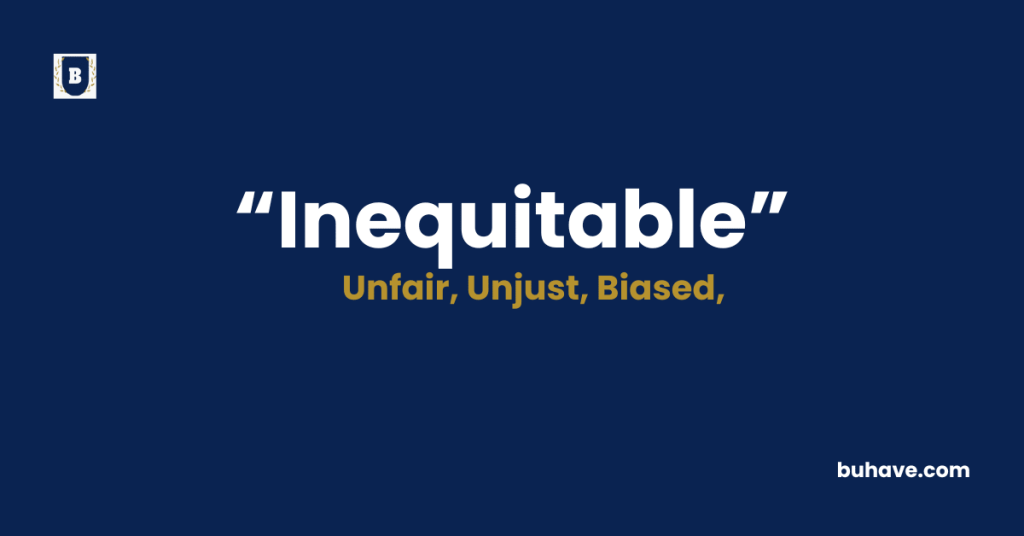The word ‘Inequitable’ (Adjective) describes something that is unfair, unjust, or lacking in equality often in reference to treatment, distribution of resources, or decision-making. In this guide, you’ll learn the full definition, synonyms, antonyms, etymology, and real-life examples of how to use ‘Inequitable’ correctly in sentences.
Inequitable Explained in Depth
A complete and detailed guide to the word Inequitable including meaning, definition, examples, etymology, synonyms, and antonyms.
Meanings of Inequitable
‘Inequitable’ refers to situations or actions that are unjust or unequal. It is often used to describe biased systems, unfair practices, or unjust outcomes, especially in social, economic, or legal contexts.
Definition
Inequitable (adjective): unfair; unjust; not equitable or impartial.It is often used to describe biased systems, unfair practices, or unjust outcomes, especially in social, economic, or legal contexts.
Etymology
The word ‘Inequitable’ stems from the prefix in- meaning “not” and the word equitable, which is derived from the Latin aequitas meaning “evenness, fairness.” The term entered English in the early 17th century.
Example Sentences
- The court ruled that the policy was inequitable and needed to be revised.
- There is an inequitable distribution of wealth in many societies.
- The employees protested the inequitable treatment in promotions.
- An inequitable system favors some groups over others.
- Tax laws can sometimes be inequitable to low-income earners.
Inequitable Synonyms
- Unfair
- Unjust
- Biased
- Partial
- Unequal
- Discriminatory
- Prejudiced
- Disproportionate
- Imbalanced
- One-sided
Inequitable Antonyms
- Fair
- Just
- Equitable
- Impartial
- Balanced
- Equal
- Neutral
- Even-handed
- Unbiased
- Reasonable
FAQs about Inequitable
Here’s a FAQ-style guide about the word “Inequitable”
1. What is the difference between ‘inequitable’ and ‘unequal’?
‘Unequal’ refers to a lack of sameness or parity, while ‘inequitable’ implies unfairness or injustice in the difference.
2. Can something be unequal but not inequitable?
Yes. For example, merit-based rewards may be unequal but not necessarily inequitable if they are fairly earned.
3. Is ‘inequitable’ used in legal contexts?
Yes. It often describes laws, contracts, or decisions that are unjust or unfair.
4. How do you pronounce ‘inequitable’?
It is pronounced /ɪnˈɛkwɪtəbəl/.

















